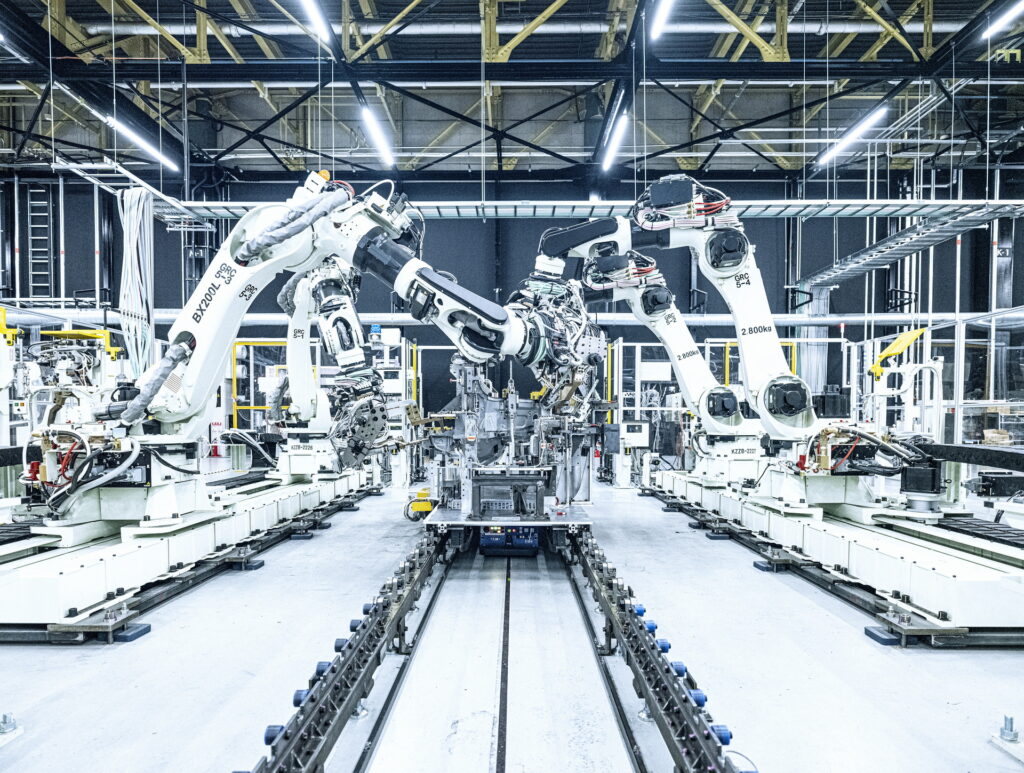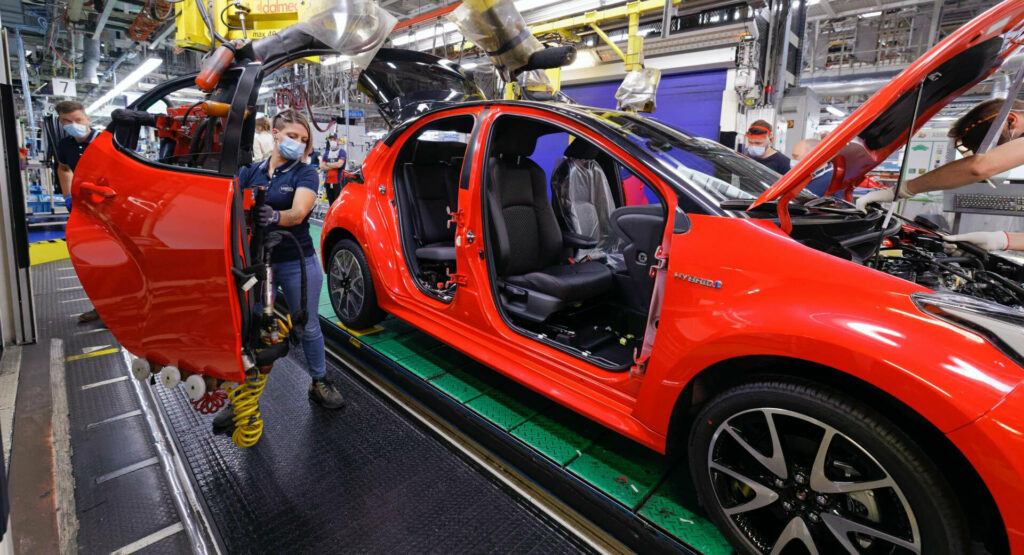Toyota says it is aiming to produce 10.6 million vehicles for the 2023 calendar year but remains wary of supply chain shortages.
The Japanese car manufacturer says that the spread of COVID-19 throughout 2022 and continued shortages of parts including semiconductors prompted it to repeatedly adjust its production plans. Its approach for 2023 is to place the highest priority on safety and quality “while making every effort to deliver as many vehicles as possible to our customers at the earliest date.”
Toyota notes that it has set a baseline production volume with a downward risk fluctuation of approximately 10 per cent. This helps communicate production plans to suppliers and other stakeholders and incorporates a range as there will be fluctuation risks to its production volume ceiling in the event of parts supply shortages as there were in 2022.
Read: Toyota CEO Says “Silent Majority” Of Auto Industry Is Doubting EV-Only Future

“The situation this year remains difficult to predict due to factors such as semiconductor shortages and the spread of COVID-19,” Toyota added. “However, we will continue to carefully examine parts supplies and supplier situations to create more stable production plans and reduce supplier burdens, while considering all possible production fluctuation measures to ensure that we can deliver as many vehicles as possible to our customers at the earliest date.”
This month, Toyota intends on building some 700,000 vehicles, with approximately 200,000 being built in Japan and the remaining 500,000 being assembled in overseas factories.




